Roundtable: Innovation key to property investment success

New technology, progressive ideas and adaptation are vital when it comes to securing higher commercial property investment returns.
Byline: Stephen Emerson, Managing Editor.
Commercial property investment has had a stormy few years, however look deeper and key sectors are thriving. Innovation is providing a resurgent wind and the sustainability tide presents as many opportunities as it does challenges.
New investment opportunities, driven by innovative ideas and technology, was a central tenet of a roundtable held by The Business Magazine in partnership with the world's first regulated real estate stock exchange IPSX.
ROUNDTABLE PARTICIPANTS
Neil Brackstone, Tax Partner, BDO
Luke Masters, Relationship Manager, Sillence Hurn
Kathy Pain, Professor of Real Estate Development, Henley Business School
Brendan Sharkey, Partner, accountants MHA
Jake Booth, Director, Campbell Gordon
Rachel Duncan, Partner in the Real Estate Group, Herrington Carmichael Solicitors
Katherine Croom, Managing Director, Sorbon Estates
Maria Mowberry, Partner, B P Collins Solicitors
Liz McKillop Paley, Partner, Shoosmiths
Louise Porter, Head of Marketing and Communications, IPSX
Rupert Snuggs, Head of Capital Markets Group, IPSX
Darius Divwalla, Director of Origination, IPSX
Richard Stacey, Managing Director, Evoke Transport
Peter Laurie, Head of Client Relations, The Business Magazine
Terri Warren, Senior Associate, IBB Law
The discussion probed where the growth sectors are, how the property sector is rising to the sustainability challenge and how the Thames Valley can retain its position as the premier spot for commercial property investment outside of London.
Brendan Sharkey, a partner at accountants MHA, said that sustainability was the driving force in reshaping the property investment market.
He said: "If you want to refinance your building then you have to have an A or B rating (EPC) and that is what is changing the commercial property market.
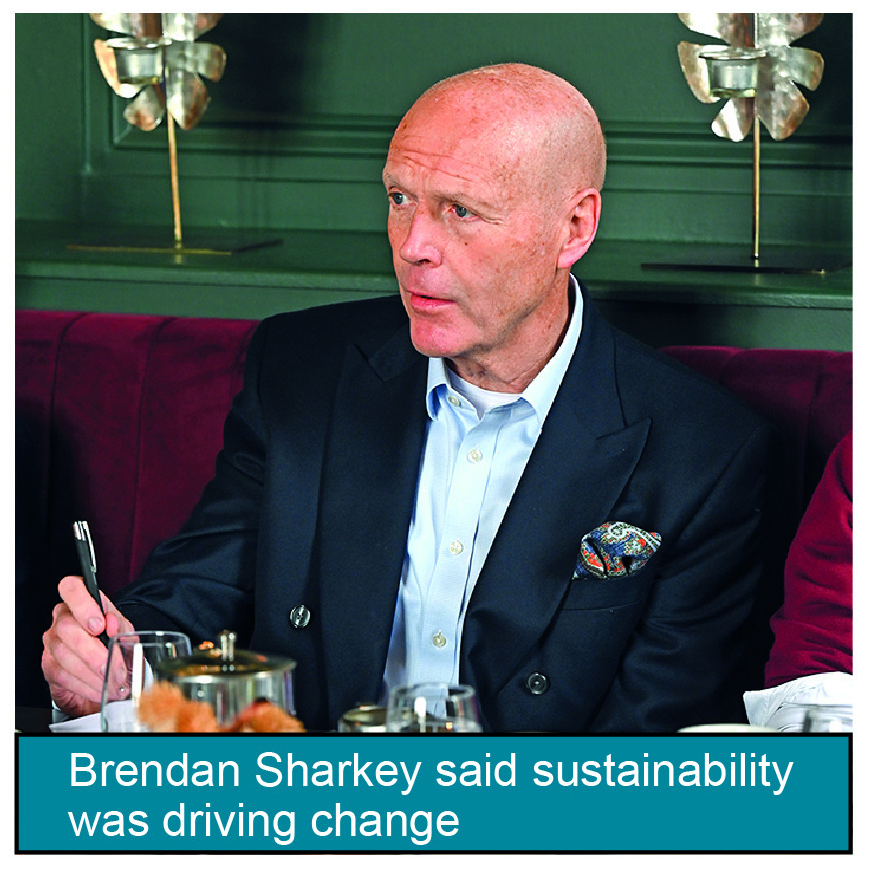
"London or the South East can cope with this on the whole however the North can't do it as the costs for retrofitting are the same and the investment returns do not work so it is going to become a big problem."
The requirement for development sites and schemes to reach an acceptable sustainability rating may be driven from the regulatory side, however there is, according to Managing Director at Evoke Transport Richard Stacey, a cultural change occurring within organisations.
He said: "Clients are doing it because they want to and realise that it is necessary to onward sell and attract investment.
"Clients were doing something in the past because that is what was required of them by the planning framework or the local authority, but now they are doing it because they want to. They recognise the key agenda of health and wellbeing alongside place-making."
Sustainability is gaining momentum
Canny property investors always have their eye on the long term which is also adding wind to the sails of the sustainability momentum.
Liz McKillop Paley, a Partner at law firm Shoosmiths, said: "ESG is at the forefront of all boards’ minds at the moment as it is key to protecting future profits. EPCs are not ideal but until we have something more transparent, that's what we have to work with and measuring sustainability is going to be key to protecting the future of assets.
"Assets risk being stranded and there could be a market for a brown discount." [a building’s value will depreciate if it isn’t sustainable].
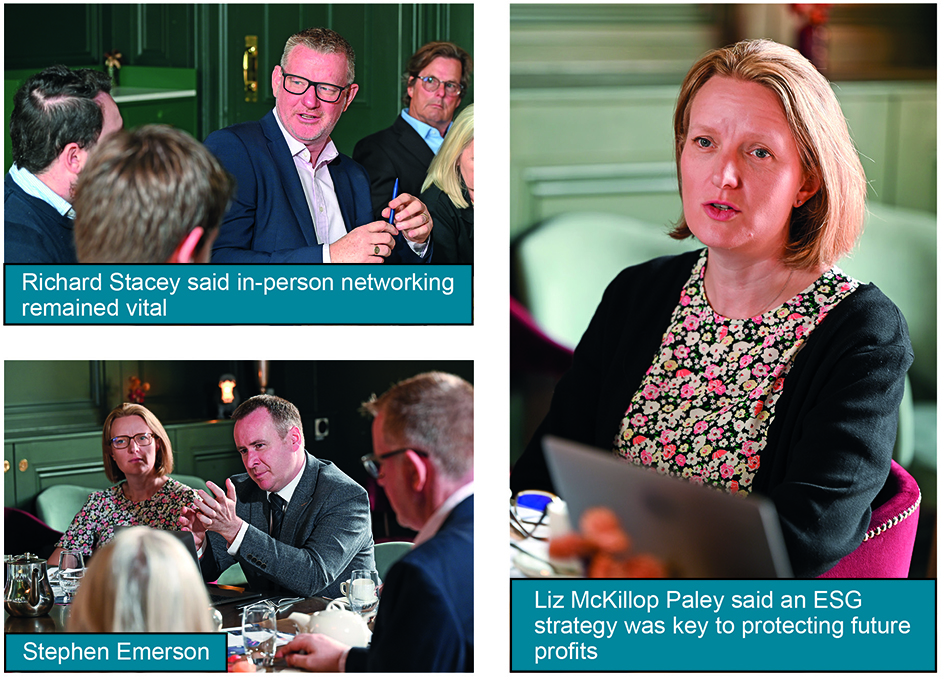
A dearth of sustainability data could present a future iceberg for the property industry with a lack of transparency and available data hindering investments for projects.
The void of data on the ‘S’ in ESG, specifically societal health and wellness, is being addressed by Professor of Real Estate Development at Henley Business School, Kathy Pain, in a Bristol Medical School-led consortium project – TRUUD: ‘Tackling the Root causes Upstream of Unhealthy Urban Development’ - funded by the UK Prevention Research Partnership.
She said: "If you are looking at transaction-based evidence used in valuations, that data is not for forecasting and will not tell you where health risks are going to come in a real estate investment project.
"Covid has driven awareness with investors in terms of thinking that health and wellness in new developments is really important.”
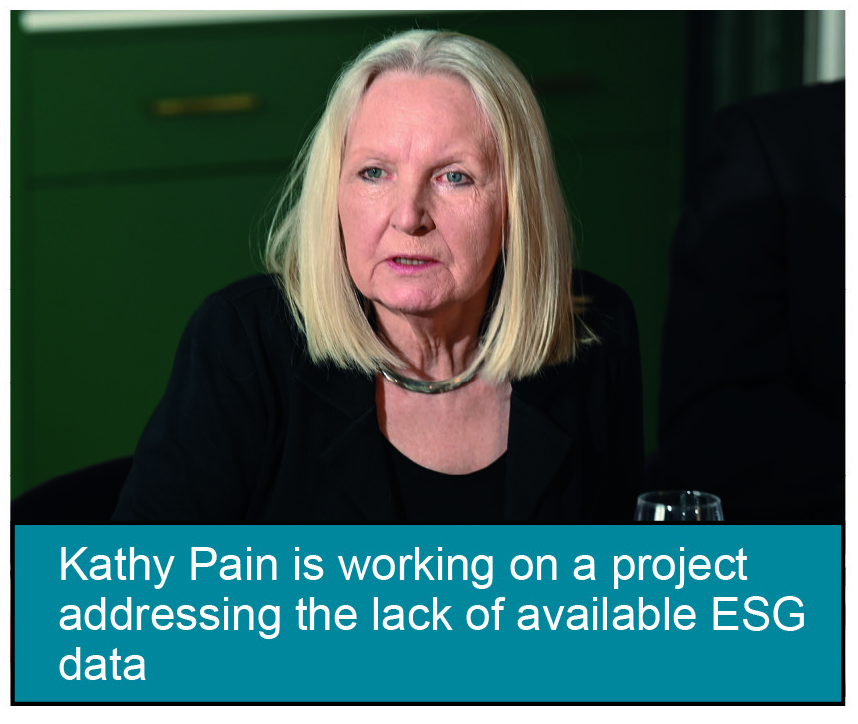
Kathy added: "However, where do you get the data? If you are changing an existing development from retail to residential and mixed use then where do you get the data on the health risks going forward. This is the data drought the research is addressing.
"Big investment banks and REITs need to know where the money to deal with future problems will come from so that they can factor it in through repurposing and regeneration and not just to mitigate the cost but add value to the investment.”
Liz McKillop Paley of Shoosmiths said issues with sustainability data was a growing problem for the industry and that new solutions were needed.
She said: "Data is a major issue when it comes to sustainability. We are moving from a period of modelled data to actual data but being able to gather this is too difficult still.
"Green lease clauses have come and gone over the years, but they are definitely back and here to stay.
"Green leases is a big part of the toolkit that is going to be used to gather that information/data that is so desperately needed to allow both investor and occupier to make a difference to their energy usage for example and comply with their reporting requirements.
"The difficulty for occupiers is that they have a concern over the administrative burden of what that is going to look like as well as the confidentiality of that data and what it is used for."
IPSX's platform has transparency of data as one of its core foundations which taps into the drive for clearer information in all parts of the property industry.
Darius Divwalla, Director of Origination at IPSX, said: "We provide transparency. With each asset you will be able to see who the tenants are and the credit scoring of tenants which adds transparency to a market which has traditionally been viewed as opaque.
“The private markets around the world do provide other sources of capital and liquidity for real estate investment. IPSX provides the regulatory comfort blanket into direct real estate investment, especially important for Ultra-High-Net-Worth Individual’s, private banks and wealth managers, while adding genuine liquidity into a market which has been illiquid."
Innovation is key to the future growth of the property investment sector and IPSX say they seek to "democratise" the industry.
Rupert Snuggs, Head of Capital Markets Group at IPSX, said: "The idea is to democratise investment in buildings for real estate investors and private wealth. People who have never had direct access to retail investment. We provide that platform for them.
"For asset owners, they can access a pot of cash that has traditionally been unavailable.”
While the future of the sector is being shaped by innovation and sustainability, what are the current forces that are shaping the market and its immediate outlook?

Jake Booth, Director at Campbell Gordon, said demand was softening in the Thames Valley however he expected the recent company organisational changes to be reflected by an uplift in activity.
“Offices are seeing huge volatility because of the pandemic. Office yields have risen significantly, pushing down capital values, affecting the way investors view the asset class. This has been further exacerbated due to forthcoming changes in government policy tightening up on energy performance minimum standards.
“Demand in the property market has softened over the last 18 months in the Thames Valley in particular. However, there is now significant new demand, and while a lot is coming from occupiers consolidating their occupational footprints, it reflects a real desire for corporates to bring their teams together in modern workspaces.
“There was an expectation that this office occupation reshuffle would happen immediately after Covid but it is only now we are seeing it.
“This has created a challenge for landlords with low quality stock, as occupiers are taking the opportunity to enhance their space. They have more firepower to pay for top quality given their space reduction.”
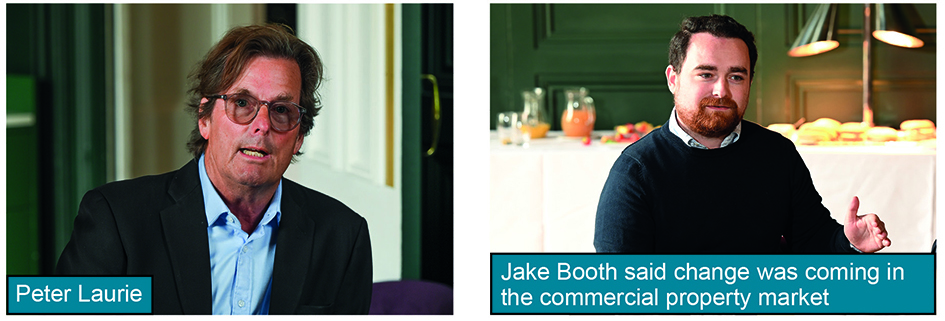
The Ukraine war, inflation, the mini budget and the mini banking crises in Europe and the US have meant that the surge in demand in real estate investment in 2021, fuelled by pent up real estate demand pressure due to Covid and a very strong industrial property market, has now become a distant memory according to Rachel Duncan, a Partner in the Real Estate Group at Herrington Carmichael Solicitors.
She said: "We are in a period of great uncertainty and it is probably the most challenging time for property investment since the global financial crisis back in 2008.
"Investors are pausing to assess the risk they face and considering how they can underwrite them accordingly.
“The ability to attribute performance and risk to a growing number of key factors such as yield and leasing profile, and exposure to risks such as climate change, is becoming increasingly important for investors.
"Covid has had a huge effect on the property market in different ways – one of these being that it has displaced a lot of economic activity and made it difficult to know what the “new normal” is likely to be in terms of working from home or working from the office, and what that means for property demand in different areas.”
Terri Warren, Senior Associate at IBB Law, said there were signs that the property market in the region was picking up.
She said: "We have seen a lot of head office moves and I do think it is a positive market but it does have its glitches like everywhere else.
"The Thames Valley does seem to have bucked the trend after the mini budget and it does seem to be bouncing back coming into the summer."
You don't have to look far in any of the Thames Valley's town centres to see the challenging position that retail property is in.
The retail property sector, according to the roundtable, should not be treated as one block on its own, with some parts of the market showing promise and adaptation to the online-led retail landscape.
Katherine Croom, Managing Director of Sorbon Estates, said that the shopping centre property market was in trouble but the wider retail market was showing signs of stability.
She said: "There is no lending in this market with banks sitting on shopping centres that they effectively own as there is no equity in them.
"There are some positive signs with leisure conversions that may eventually wash their face.
"Shopping centres are being given a different purpose but there are a lot of shopping centres across the country that need to be demolished. For some of them, their time is over.
"The retail market is settling down a bit and bricks and mortar remains important to retailers.
"Even though there was a lot of growth during the pandemic in terms of online sales I do think retail is now cooling."
There is also, according to Katherine, a divergence in fortunes emerging between large urban and provincial centres when it comes to retail property with the latter showing improving fortunes.
She said: "We are moving to the European model where shopping centres outside of prime locations are thriving. Bracknell has a good example of how to do a shopping centre outside of a prime location.
"We are heavily invested in Maidenhead and getting more retailers or people living in the town centre will help drive regeneration."
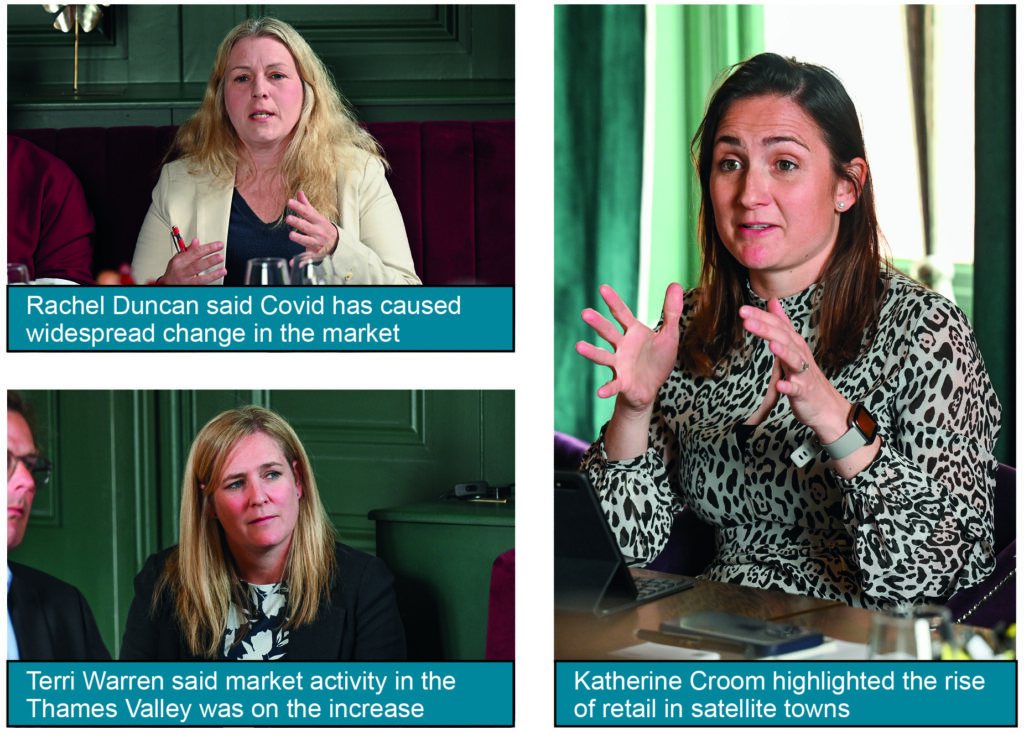
Retail parks with their ample parking and easy access by car are able to tap into the growth of click and collect services, according to Maria Mowberry, a Partner at B P Collins Solicitors.
She said: "Shopping centres are losing favour however retail parks are a different story. Coming out of the pandemic and with the growth of online retail, retail parks are adapting well to changes in current shopping habits and tapping into the desire for click and collect.”
For those with a higher risk threshold, being brave in property investments can pay off.
Luke Masters, a Relationship Manager at Sillence Hurn, explained: "You can now buy retail at below its cost to construct, fewer new retail is being built so its supply is naturally diminishing which mirrors the market demand along with a growing portion of retail assets being repurposed to different operational uses.
"There comes a point where you still have to be quite brave with your investments and I still think retail has good enough fundamentals in a mixed portfolio. If you have appetite for an investment higher up the risk curve it makes a lot of sense to have a look at it as the right asset often provides a good yield.”
With uncertainty in retail and the office space, where should investors be looking for properties with good long-term potential?
The roundtable highlighted data centres, student housing, age care facilities , Build To Rent (BTR) as areas to watch.
Rachel Duncan of Herrington Carmichael Solicitors said: "The BTR market is burgeoning and there has been an increase outside of London particularly with a rise in investment in suburban family homes."
Jake Booth of Campbell Gordon also singled out BTR for its ability to provide developers with a capital stream to spend on improving other parts of their development.
He said: “BTR remains a growth area in the Thames Valley and it is interesting to see these schemes start to trade. It is proving to be a resilient asset class in a context where yield shifts are negatively affecting capital values across a large portion of the property market.
"There is a continued need for the ability to unlock central urban sites in key Thames Valley centres through planning for mixed use regeneration schemes – it is essential that the market can react to pressures negatively affecting certain assets such as lower grade offices in good quality locations through change of use. The planning review system should increase in frequency to accommodate this better.”
In previous tough economic times, commercial property has been a defence against inflation and safe haven for capital. With the market being reshaped by macro-economic changes brought on by the pandemic, is this still the case?
Neil Brackstone, Tax Partner at BDO, said property could be a hedge against inflation if prices continued to rise.
"Property has been seen as a hedge in the past given the increasing value of assets, he added. "Whether it could still be considered as such is dependent on whether or not property prices will continue to rise at the rate that they have done in the past."
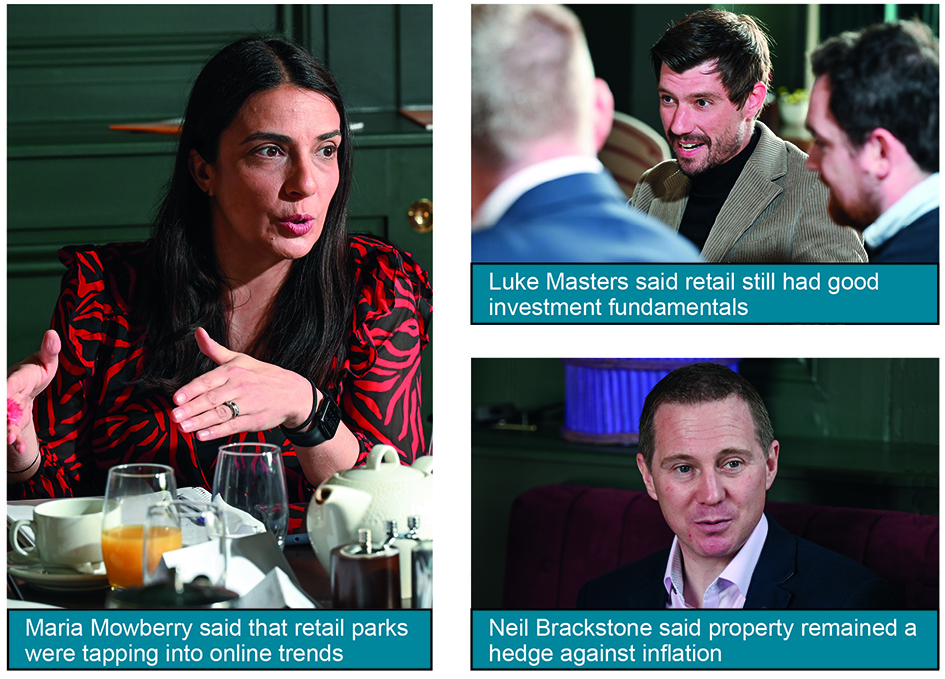
MHA's Brendan Sharkey echoed his comments adding that property remained a solid investment. He said: "I would still call it a hedge as we need food and we need shelter. If you can see what the future holds and meet that expectation, then property will be a solid investment."
Professional services in the Thames Valley have been renowned for their close-knit cooperation which has generated wealth for the region as a whole.
However, with face-to-face meetings being increasingly replaced by video calls and a generational divide emerging when it comes to in-person networking, the roundtable questioned whether this advantage would remain.
Evoke Transport's Richard Stacey said: "There is nothing like meeting people face to face and it is starting to return more.
"When you get involved with a new client it is very difficult to develop that relationship because you are seeing them two dimensionally. Having an office which is in a good location for networking is important."
IBB Law's Terri Warren added: "A lot of youngsters lack confidence and are unlikely to take contacts out for lunch.
"The culture has changed whereas before people would go out for a beer after work, now they want to go home."

We asked our roundtable members where they would invest their own personal money this year.
They answered:
Kathy Pain, Henley Business School: Urban property
Luke Masters, Sillence Hurn: Stem cell sector
Jake Booth, Campbell Gordon: Build to Rent
Richard Stacey, Evoke Transport: Film Studios or Data Centres
Terri Warren, IBB Law: Green belt land
Neil Brackstone, BDO: Science and technology properties
Brendan Sharkey, MHA: Retirement living
Rupert Snuggs, IPSX: Big real estate data
Darius Divwalla, IPSX: European hostels
Louise Porter, IPSX: Student housing in the North and big real estate data
Rachel Duncan, Herrington Carmichael: Life sciences real estate
Katherine Croom: Sorbon Estates: Proptech industry
Maria Mowberry, B P Collins Solicitors: Battery storage sites
Liz McKillop Paley, Shoosmiths: “Destination” flexible office space
ABOUT
IPSX is the world’s first regulated stock exchange dedicated to commercial real estate. It offers commercial real estate owners a powerful new capital markets option to release value from their assets, whilst democratising access to income-producing, institutional grade real estate by opening it up to the widest possible pool of global investors, including retail investors. IPSX enables investors of all types to invest in income-producing real estate assets, with secondary market liquidity, through buying shares, traded on a regulated stock exchange.
IPSX is open to institutional grade commercial real estate owners, including owner-occupiers, and provides the flexibility to sell all, or part of an asset with future optionality to further sell down or reacquire shares.
IPSX transforms commercial real estate investment, for the first time enabling direct investment into prized commercial real estate assets via a public market.














